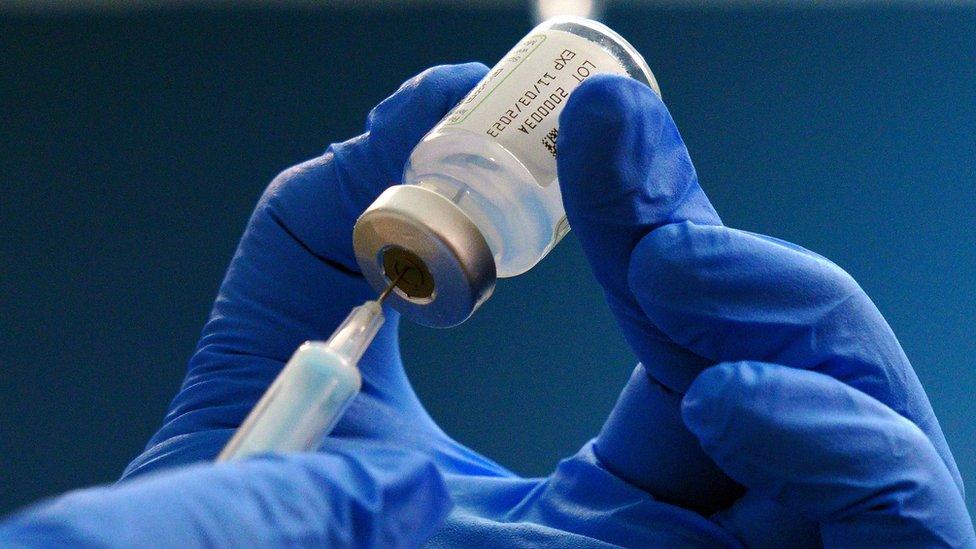Should a Christian Be Vaccinated?
We live in the world where modern medicine has extended life expectancy and improved quality of life, the question of whether a Christian should be vaccinated has raised ongoing discussion. Some Bible believing Christians are cautious due to ethical, spiritual, or health concerns. Others see vaccination as a gift of God’s common grace. To respond biblically and wisely, we must understand both what vaccines are and how they fit into the Christian worldview.
Understanding Vaccines in a Fallen World
Vaccines are medical tools designed to prepare the body to resist specific diseases. They simulate an infection, triggering the immune system to respond, which helps protect a person if they are later exposed to the real disease. In a fallen world filled with pain, suffering, and sickness as a result of sin (Romans 5:12), medical advancements such as vaccines can be seen as one of the ways God restrains the curse and provides healing through human discovery.
Side effects are possible, as with any medicine, but most vaccines undergo extensive testing to ensure safety and its effectiveness. We should recognize that while we live in a fallen world, this does not mean we must reject all human knowledge. Rather, we are called to discernment (1 Thessalonians 5:21).
The Biblical View of Health and Prevention
Jesus said, “They that be whole need not a physician, but they that are sick” (Matthew 9:12). This shows that medical help is not sinful or faithless, but rather often necessary. While Jesus was speaking spiritually, the principle acknowledges that health care is a mercy for the sick. In fact, throughout Scripture, God’s people have used physical means to preserve life. Paul told Timothy to “use a little wine for thy stomach’s sake and thine often infirmities” (1 Timothy 5:23), showing that even in apostolic times, practical remedies were not rejected.
Preventing disease has biblical precedent. In Leviticus, God instructed the Israelites in quarantine procedures, sanitation, and other public health guidelines. These principles, though not identical to modern vaccines, point toward the idea of preventing the spread of disease. Vaccines function similarly, equipping the body in advance to resist infection.
Christian Ethics and Responsible Stewardship
Ethical concerns sometimes arise about how certain vaccines are developed. Christians should research the source and development process of vaccines, particularly when fetal cell lines from past abortions are involved. Romans 14 reminds us to act according to conscience, but also not to despise one another in matters of liberty. Believers should prayerfully and responsibly weigh their decisions.
Stewardship of one’s body and care for others are biblical principles (1 Corinthians 6:19-20; Philippians 2:4). Vaccination, especially against easily transmitted diseases, can be a way of loving your neighbor by not becoming a carrier.
Common Objections
Some argue that “natural immunity” is preferable to vaccination. While natural immunity may result from surviving a disease, this comes with risk. Polio, measles, hepatitis B, and Hib (Haemophilus influenzae type B) have all left death and disability in their wake. For example, polio cases dropped by over 99% since vaccines were introduced globally. Hib caused severe infections in children, but is now rare where vaccination is routine.
Others suffer from chemophobia—an irrational fear of chemicals or medications. However, this is often rooted in misinformation. For instance, despite persistent rumors, no credible scientific study has established a link between vaccines and autism. Christians should seek truth (Proverbs 18:13) and consult both Scripture and trusted medical sources.
A Christian's Approach to Medical Decisions
Ultimately, vaccination is a matter of wisdom, not salvation. Believers should weigh the evidence, seek counsel, and pray for guidance. Some may choose not to be vaccinated due to allergies, immune system issues, or other personal reasons. In such cases, the choice should be made wisely, not pride.
Meanwhile, Christians routinely apply the same principle of risk reduction in everyday life. We install seatbelts, filter water, and wash hands to avoid harm. Vaccines are another way to protect the body and others, not a replacement for our dependence in God, but a tool of His providence.


Mercy
This is the most non bias balanced approach we must take I believe.
August 4, 2025, 12:30 p.m.